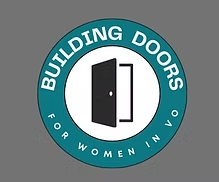 In a world of one-off jobs, making a living in VO can seem daunting, but recurring work from regular clients is one of the keys to getting there.
In a world of one-off jobs, making a living in VO can seem daunting, but recurring work from regular clients is one of the keys to getting there.
The Holy Grail for a working actor – or one aspiring to be – is a recurring gig. With the freelance nature of the industry, where no sooner than one job is completed you’re scrambling to find another, regular work for the same producer/production can provide stability and bolster confidence. There is no such thing as full-time work in this business – and most of us get into it, as least in part, because traditional full-time employment does not appeal to us – but this is as close as you can get. In film that means getting into a franchise; on TV, it’s working on a series. In voiceover, it can be a variety of things like commercial campaigns, network promos, documentary series, audiobooks, web videos, and more.
A significant part of building a career comes through establishing relationships with producers that add you to their roster and book you regularly. Easily half of my work comes from clients like these, some going back over a dozen years. In a lot of ways, this is like a sales job: you build lasting relationships with a pipeline of clients by providing a consistent quality of service. Along the way, you lose some old ones and pick up new ones. The best of these clients are the ones who use you exclusively, as part of a small roster or, in the best case, exclusively on a long-running basis for frequently produced work.
In the commercial world, examples of such situations include being the voice of a telecom company’s national campaigns, regional fast food restaurant spots and local auto dealership productions. Obviously, the bigger the campaign the better, but if you are able to connect with a local producer working for a chain of car dealers, community banks or even liquor stores, that can be a massive boost to your work prospects and bottom line.
Same goes for narrations. Becoming the narrator of a documentary series or the voice of a company’s online marketing content provides a creative variety of work and can line your pockets. I’ve been really fortunate over the years to be involved in such long-running commercial and narration productions for companies like Verizon, Apple, A&E and USA Today. And as a result, I have fine-tuned my radar for the best ways to secure the next one.
First of all, you’ve got to know how to identify which casting call could turn into something long-running. Be wary of a line like ‘may lead to future work.’ This is usually a way of getting you to submit for a low-priced job with the promise of additional productions that usually don’t materialize. What you are looking for is something like ‘first in a series,’ ‘regular narrator needed’ or ‘consistent work, do not apply if unable to make a commitment.’ When it’s clear it could be something big, drop everything and get right to it. These opportunities are rare, so when they come around they take precedence over any other auditions, and even bookings, if one can be pushed back. Don’t rush it though. Auditioning is normally a speed and numbers games, and while you should never send one out that is not your best effort, take a little extra time to ensure you nail these types of casting calls.
When bidding on a recurring gig, take the potential volume of the work into consideration. Especially on a local commercial campaign or web video series, where budgets are traditionally lower, it’s fine to reduce your normal rate request. As ever, when asked to quote your rates, keep the scope of the project and the client in mind, and never undersell yourself; but if booked, the large volume of a recurring job will make up for lower rates.
From the beginning of the auditioning/casting process, represent yourself honestly and professionally. Be reliable, available and punctual. Don’t misrepresent your abilities to perform and meet the client’s deadlines. Oftentimes, being the sole talent – or among a small roster – a producer calls upon can require being on-call pretty much all of the time. If you are not able to make this commitment in the short, medium and long term, don’t go out for or accept the gig. It can be a Catch 22: booking recurring work may allow you to do VO full-time, but until you are able to do it full-time it can be difficult to fulfill the obligations of the projects.
Finally, don’t take it personally when the job runs its course. That’s the nature of this business. Gigs come and gigs go, and you just keep striving towards the next great opportunity!
Alan Schwartz is a nationally recognized voice over talent who has served as the voice for Sprite, Verizon, Smirnoff Ice, and “Alex” from the Mac Operating System, among others. You can find more of his work at ajsvoiceover.com.





